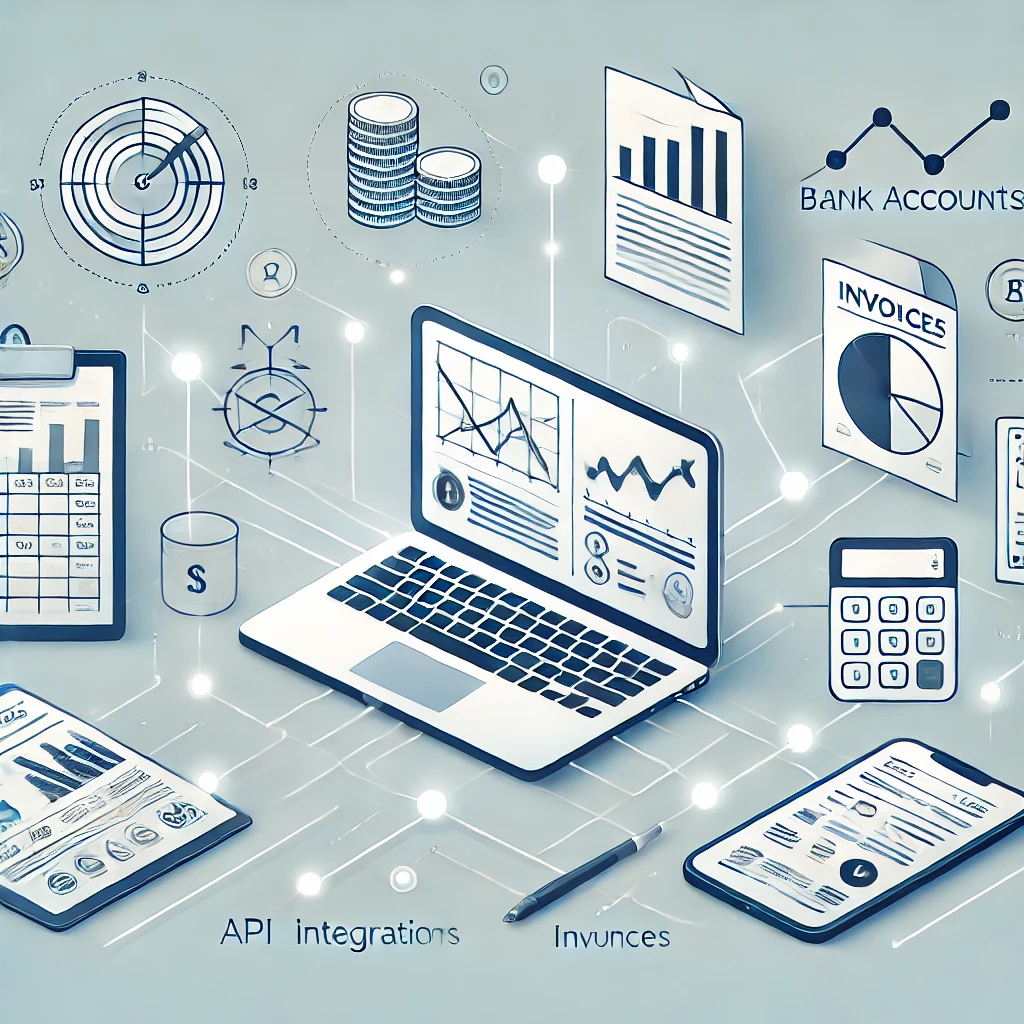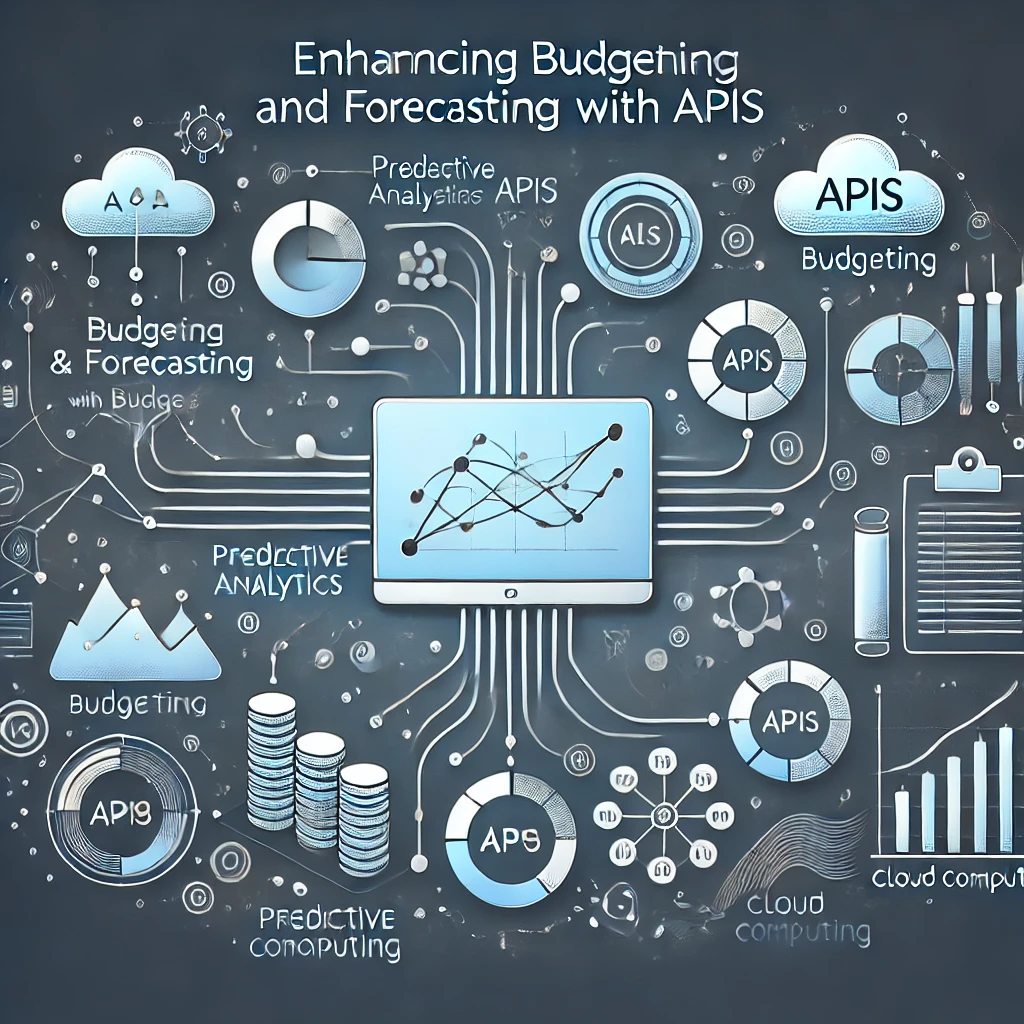Bookkeeping API integrations are transforming the way businesses manage their financial operations, offering streamlined processes, enhanced accuracy, and significant time savings. By leveraging APIs, companies can create seamless connections between accounting software, invoicing platforms, and other financial tools, making bookkeeping more efficient and error-free. In this blog post, we’ll explore the power of bookkeeping API integrations, their benefits, and how they are revolutionizing financial tracking.
Table of Contents
Why Bookkeeping API Integrations Are the Key to Modern Financial Management
Managing financial data manually can be time-consuming, error-prone, and inefficient. As businesses grow, their financial operations become more complex, requiring innovative solutions to keep up. This is where bookkeeping API integrations shine.
APIs (Application Programming Interfaces) enable different software systems to communicate seamlessly. For bookkeeping, this means your accounting tools, invoicing systems, and bank accounts can sync automatically, eliminating the need for tedious manual data entry and ensuring data accuracy across all platforms.
Bookkeeping API integrations create a unified financial ecosystem, allowing businesses to gain real-time insights, automate repetitive tasks, and focus on strategic growth instead of administrative burdens.
Automate Tedious Tasks with Bookkeeping API Integrations
Real-Time Data Synchronization
One of the most powerful features of bookkeeping API integrations is real-time data synchronization. Transactions from bank accounts, invoices, or expense reports can be automatically imported into your accounting software without any manual input.
This automation not only saves time but also ensures your financial records are always up-to-date, enabling accurate reporting and analysis.
Error-Free Data Entry
Manual data entry often leads to mistakes, which can create significant problems during audits or tax filing. With bookkeeping API integrations, data is transferred automatically, reducing the chances of errors and ensuring consistency across all financial tools.
Effortless Bank Reconciliation
Reconciling bank accounts can be a tedious and time-consuming process. Bookkeeping API integrations simplify this task by automatically matching transactions between your bank accounts and accounting software, flagging any discrepancies for review.
If you’re intrigued by the power of automation in streamlining financial processes, don’t miss this insightful Medium article: “How to Automate Your Accounting Workflows”. This article dives deep into actionable strategies to optimize your accounting systems, reduce manual effort, and improve efficiency. It’s the perfect next read to complement your knowledge about bookkeeping API integrations and take your financial management to the next level.

Simplify Financial Tracking and Reporting
Comprehensive Cash Flow Management
Bookkeeping API integrations provide businesses with a clear and accurate view of their cash flow. By syncing financial data from multiple sources, these integrations allow you to monitor revenue, expenses, and profit margins in real time.
This comprehensive view helps businesses make informed decisions, avoid cash flow issues, and plan for future growth effectively.
Automated Reporting
Generating financial reports manually can be a time-consuming task, especially for growing businesses. API integrations automate the reporting process, ensuring that your data is always accurate and available when you need it.
Whether it’s preparing monthly profit-and-loss statements or creating tax reports, bookkeeping API integrations simplify and speed up the process.
Managing your finances doesn’t have to be overwhelming! Check out the Medium article “Financial Tracking Made Easy With SparkReceipt”, which explores how this innovative tool simplifies tracking expenses, managing receipts, and staying on top of your financial health. Whether you’re a business owner or someone looking to streamline personal finance, this article provides actionable insights to make financial tracking effortless.

Enhance Budgeting and Forecasting with APIs
Data-Driven Insights for Better Decision-Making
With access to real-time data through bookkeeping API integrations, businesses can create more accurate budgets and forecasts. These integrations allow financial tools to analyze past performance, identify trends, and provide actionable insights for future planning.
Smarter Budget Adjustments
When your financial data is always up-to-date, it’s easier to adjust budgets dynamically based on current performance. This flexibility ensures that your business remains agile and responsive to changes in the market.

Improve Compliance and Audit Readiness
Streamlined Tax Filing
Bookkeeping API integrations simplify tax filing by automating the calculation of taxes and generating accurate reports. This reduces the risk of errors and ensures compliance with tax regulations.
Organized Records for Audits
Maintaining organized and accurate financial records is critical for successful audits. API integrations centralize all your financial data, making it easily accessible and audit-ready at all times.

Integrating APIs: Choosing the Right Tools for Your Business
When considering bookkeeping API integrations, it’s important to choose the right tools that meet your specific needs. Here are some factors to consider:
- Compatibility: Ensure the API is compatible with your existing software and systems.
- Scalability: Choose solutions that can grow with your business and handle increasing data volumes.
- Security: Prioritize APIs with robust encryption and security protocols to protect sensitive financial data.

What the Future Holds for Bookkeeping API Integrations
As technology advances, the potential for bookkeeping API integrations will only expand. Emerging technologies like artificial intelligence (AI) and machine learning (ML) are set to play a significant role in predictive analytics, fraud detection, and financial decision-making.
By adopting bookkeeping API integrations today, businesses can position themselves for long-term success, ensuring they remain competitive in an ever-evolving financial landscape.
The time to embrace this transformative technology is now. Whether you’re a small business looking to streamline processes or a large organization aiming for scalability, bookkeeping API integrations are your key to efficient, accurate, and modern financial management.
If you’re intrigued by how financial automation can revolutionize bookkeeping and financial tracking, don’t miss our blog “Finance Automation Strategies: 7 Powerful API Integrations That Save Time and Reduce Errors”. This post dives deeper into actionable strategies and highlights specific API integrations that can streamline your financial processes while minimizing errors. It perfectly complements the insights shared here by providing practical examples and solutions that bring financial automation to life.

